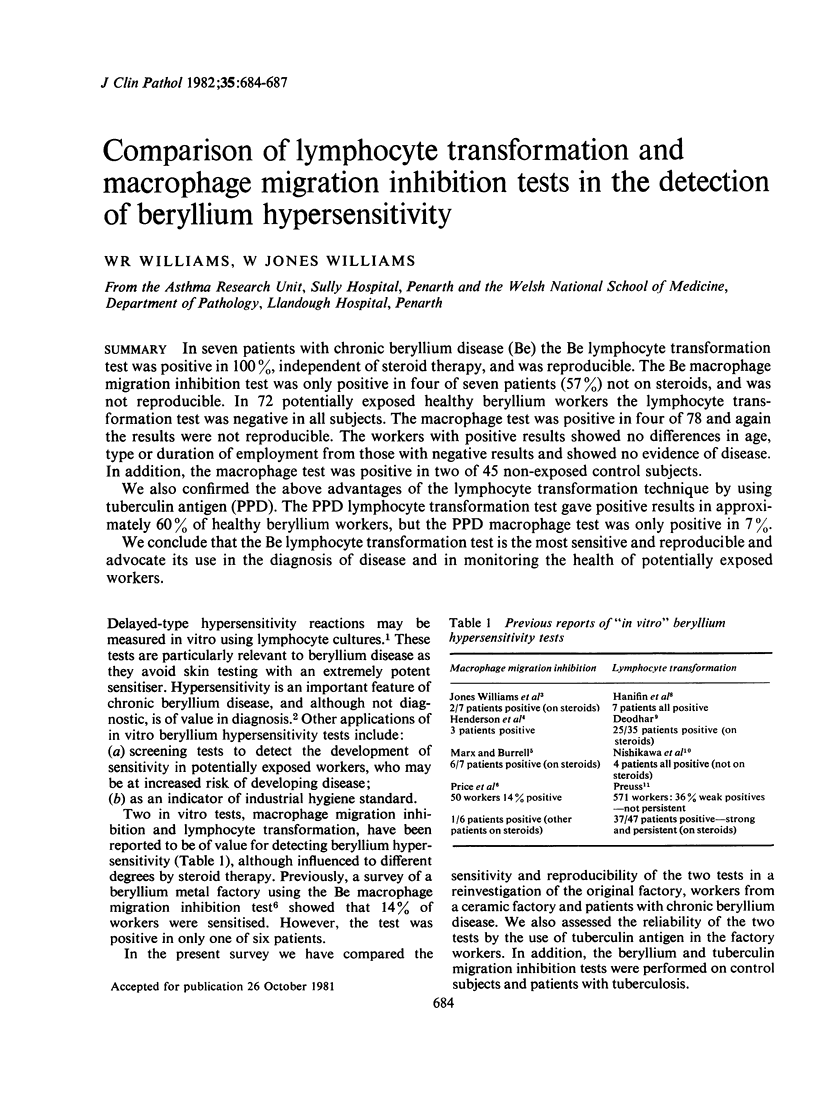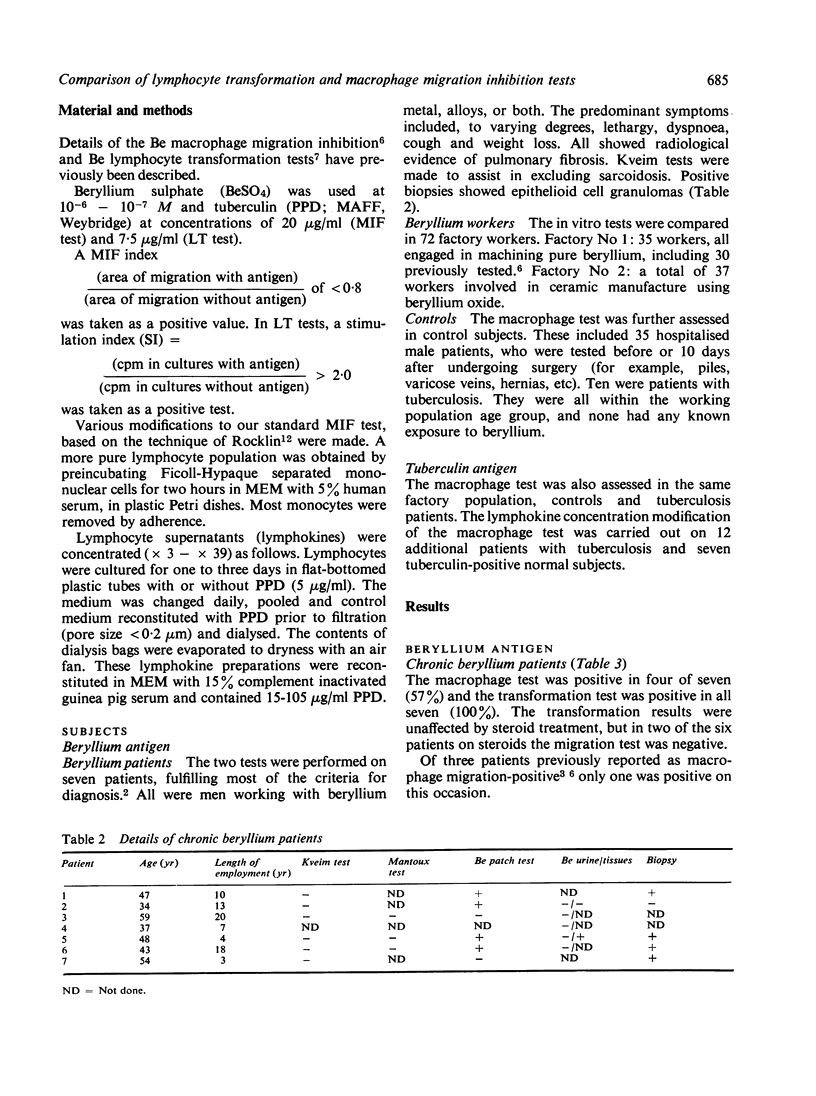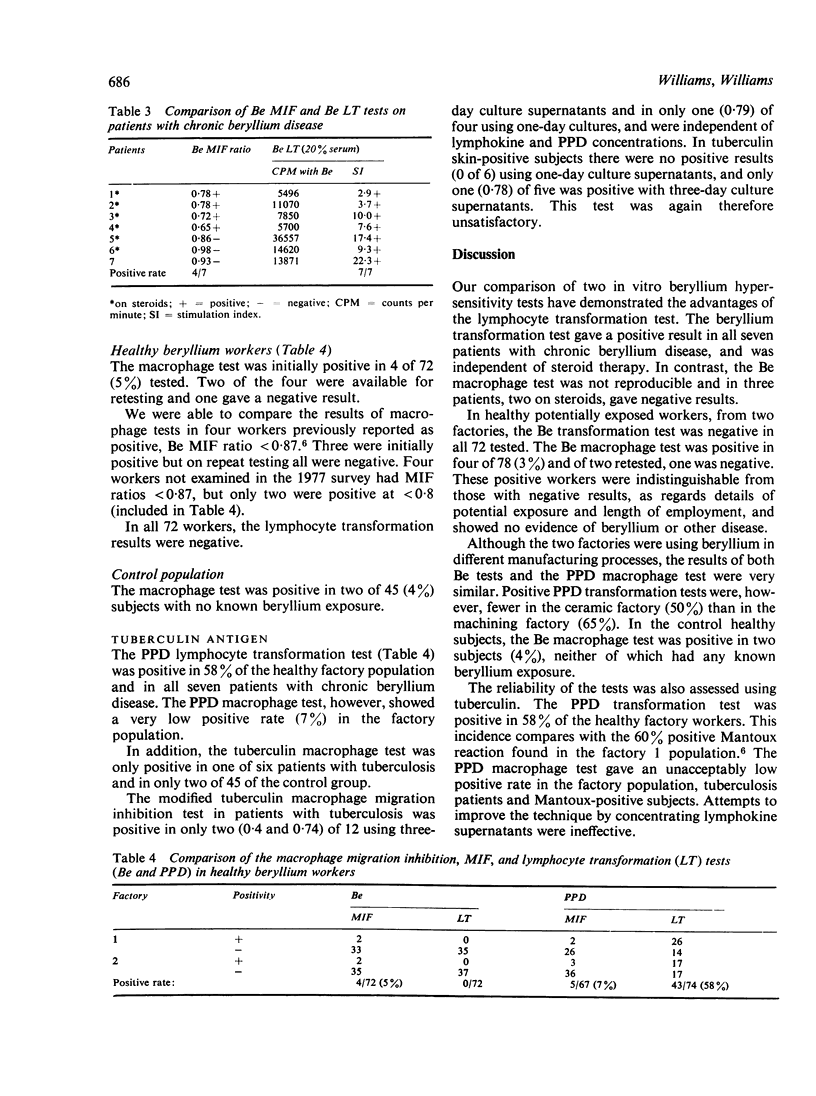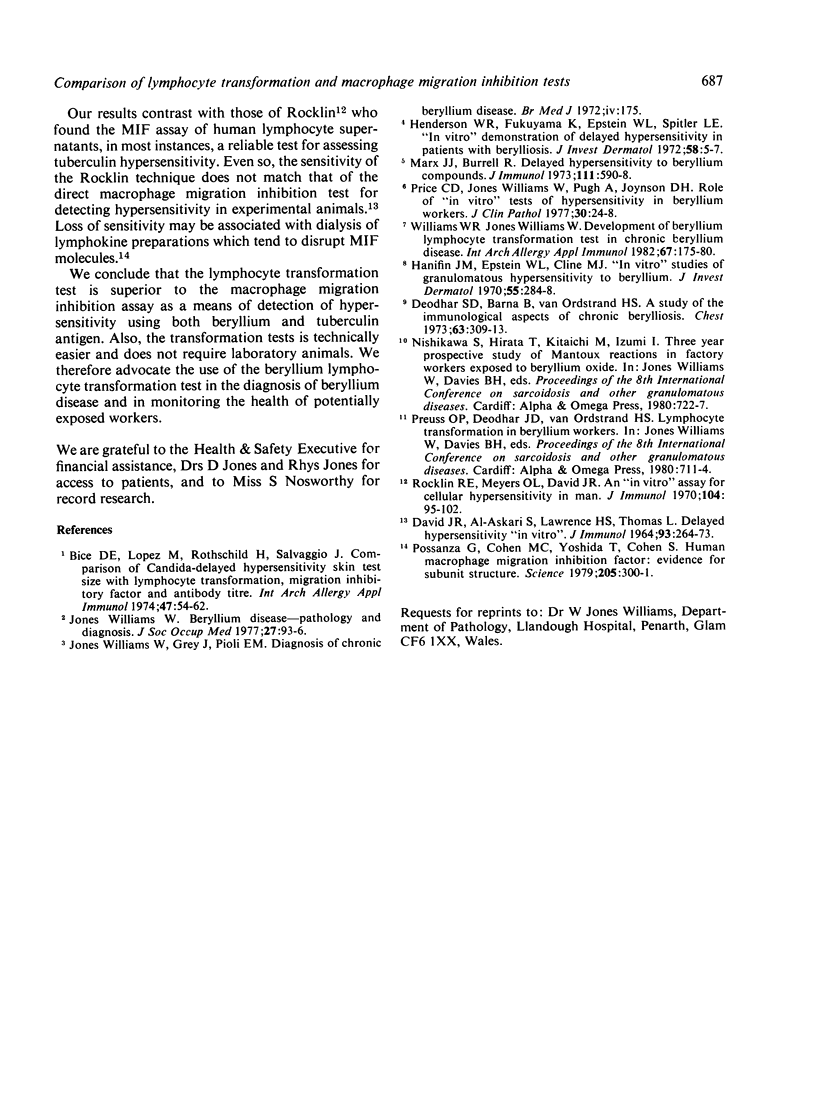Abstract
In seven patients with chronic beryllium disease (Be) the Be lymphocyte transformation test was positive in 100%, independent of steroid therapy, and was reproducible. The Be macrophage migration inhibition test was only positive in four of seven patients (57%) not on steroids, and was not reproducible. In 72 potentially exposed healthy beryllium workers the lymphocyte transformation test was negative in all subjects. The macrophage test was positive in four of 78 and again the results were not reproducible. The workers with positive results showed no differences in age, type or duration of employment from those with negative results and showed no evidence of disease. In addition, the macrophage test was positive in two of 45 non-exposed control subjects. We also confirmed the above advantages of the lymphocyte transformation technique by using tuberculin antigen (PPD). The PPD lymphocyte transformation test gave positive results in approximately 60% of healthy beryllium workers, but the PPD macrophage test was only positive in 7%. We conclude that the Be lymphocyte transformation test is the most sensitive and reproducible and advocate its use in the diagnosis of disease and in monitoring the health of potentially exposed workers.
Full text
PDF



Selected References
These references are in PubMed. This may not be the complete list of references from this article.
- Bice D. E., Lopez M., Rothschild H., Salvaggio J. Comparison of Candida-delayed hypersensitivity skin test size with lymphocyte transformation, migration inhibitory factor production and antibody titer. Int Arch Allergy Appl Immunol. 1974;47(1):54–62. doi: 10.1159/000231200. [DOI] [PubMed] [Google Scholar]
- DAVID J. R., AL-ASKARI S., LAWRENCE H. S., THOMAS L. DELAYED HYPERSENSITIVITY IN VITRO. I. THE SPECIFICITY OF INHIBITION OF CELL MIGRATION BY ANTIGENS. J Immunol. 1964 Aug;93:264–273. [PubMed] [Google Scholar]
- Deodhar S. D., Barna B., Van Ordstrand H. S. A study of the immunologic aspects of chronic berylliosis. Chest. 1973 Mar;63(3):309–313. doi: 10.1378/chest.63.3.309. [DOI] [PubMed] [Google Scholar]
- Hanifin J. M., Epstein W. L., Cline M. J. In vitro studies on granulomatous hypersensitivity to beryllium. J Invest Dermatol. 1970 Oct;55(4):284–288. doi: 10.1111/1523-1747.ep12260036. [DOI] [PubMed] [Google Scholar]
- Henderson W. R., Fukuyama K., Epstein W. L., Spitler L. E. In vitro demonstration of delayed hypersensitivity in patients with berylliosis. J Invest Dermatol. 1972 Jan;58(1):5–8. doi: 10.1111/1523-1747.ep13077177. [DOI] [PubMed] [Google Scholar]
- Marx J. J., Jr, Burrell R. Delayed hypersensitivity to beryllium compounds. J Immunol. 1973 Aug;111(2):590–598. [PubMed] [Google Scholar]
- Possanza G., Cohen M. C., Yoshida T., Cohen S. Human macrophage migration inhibition factor: evidence for subunit structure. Science. 1979 Jul 20;205(4403):300–301. doi: 10.1126/science.377487. [DOI] [PubMed] [Google Scholar]
- Price C. D., Williams W. J., Pugh A., Joynson D. H. Role of in vitro and in vivo tests of hypersensitivity in beryllium workers. J Clin Pathol. 1977 Jan;30(1):24–28. doi: 10.1136/jcp.30.1.24. [DOI] [PMC free article] [PubMed] [Google Scholar]
- Rocklin R. E., Meyers O. L., David J. R. An in vitro assay for cellular hypersensitivity in man. J Immunol. 1970 Jan;104(1):95–102. [PubMed] [Google Scholar]
- Williams W. J. Beryllium disease--pathology and diagnosis. J Soc Occup Med. 1977 Jul;27(3):93–96. [PubMed] [Google Scholar]
- Williams W. J., Grey J., Pioli E. Diagnosis of chronic beryllium disease. Br Med J. 1972 Oct 21;4(5833):175–175. doi: 10.1136/bmj.4.5833.175-b. [DOI] [PMC free article] [PubMed] [Google Scholar]
- Williams W. R., Williams W. J. Development of beryllium lymphocyte transformation tests in chronic beryllium disease. Int Arch Allergy Appl Immunol. 1982;67(2):175–180. doi: 10.1159/000233010. [DOI] [PubMed] [Google Scholar]



